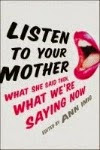Dear Chicago Theater Community,
This was not an easy article to write.
I recently had the pleasure of being part of a very important bit of theater called Teenage Dick, at Theater Wit. (I was the violence and intimacy designer.) Sadly Monday, March 16, was our last performance in front of a live audience for the foreseeable future given the current circumstance initiated by what I am calling the “b****-a** arts killer virus.” We filmed it and are now continuing the run remotely where patrons can view the show online. We ended the performance with tears, laughter, standing ovations, and nothing but love from the folx who braved leaving their homes–the audience, the designers, the performers, and the entire team. We laughed and joked, thought about what could have been, and remarked that this would not be “the last time we worked together”–yet we all knew deep down that this could be it, for a lot of us.
As I left the theater, accompanied by some of the team, I looked back at the big, bold poster reading TEENAGE DICK one last time and thought about how lucky we were to be able to tell the story in some capacity–even though it was not in the way we intended. When I was finally alone after parting ways with the team my mind inevitably began to wander.
I thought about all those theaters dropping out like flies. I thought about how Fast Company at Jackalope opened and then closed their run the following day. I thought about School Girls; Or, the African Mean Girls Play at Goodman, Intimate Apparel at Northlight, Kill Move Paradise at TimeLine, Dhaba on Devon Avenue at Victory Gardens, I Am Not Your Perfect Mexican Daughter and The Most Spectacularly Lamentable Trial of Miz Martha Washington at Steppenwolf, and Little Women at First Folio Theatre. All of these productions had something major to contribute to our theater ecosystem.
With 200some companies in Chicago all closing their doors and canceling their productions, it’s a rude awakening to the thriving theater community Chicago has had and how Chicago theater now faces the possibility of an incredible defeat.
But the heartbreak for Chicago theater doesn’t stop there. Along with shows getting canceled, companies are no longer able to fund their staff. Chicago Shakespeare Theater recently let go of a large number of staff members, from front of house to box office to production, due to its financial losses from the closure. Steven Tapas and Dianne Nora, former employees of CST, have since created a GoFundMe campaign called “Chicago Shakespeare Theater Workers Laid Off,” to raise funds and distribute it amongst the former employees.
Educational institutions have canceled their mainstage productions and senior showcases (a dream for many young practitioners trying to get a jump start into the industry) and moved all their classes online. For those going for an arts administration degree, online courses may be a smooth transition. However, for those pursuing a degree in theater arts or performance, this is far from easy.
Recently David Woolley, a former professor and mentor of mine, remarked “I have to figure out how to teach swordplay remotely!” While I have no doubt that the bold Jeff Award-winning fight master will come up with some unique experimental way of teaching stage combat to college students online (I can almost see a course title: “Combat in the Quarantine”), I can’t help but think that theater at its core is an interactive hands-on medium, and there is only so much theory out there.
Another loss for young professionals who are just entering the theater community is the opportunity to see Chicago theater at its finest. With the tumultuous political situation and a decade’s worth of struggle, it truly felt that this was the season of making bold statements. Directors from Lili-Anne Brown (School Girls) to Wardell Julius Clark (Kill Move Paradise), to Tara Branham (Little Women), to Brian Balcom (Teenage Dick)–each of their plays opened up gateways for conversation for people from all walks of life: POC, femme, queer, disabled. Whether via their creative team of designers, writers, and performers, or their subject matter itself, each of their plays was like an act of rebellion showcasing the will of the community and its need to defy the status quo.
Unfortunately, it seems like once again the powers that be have won, this time in viral form. COVID-19 is effectively shutting down what could have been a revolution via art. Instead the lack of attention paid to this pandemic early on has erased the possibility of early containment, inevitably affecting these artistic revolutionists’ livelihood.
While every artist is struggling financially (some more than others, as some theater companies are willing to pay out their contracts), no one gets into the arts for the paycheck. The reward for many theater practitioners is the excitement of knowing that you and your fellow artists get to be a part of different stories and put a unique spin on them. Many theatermakers lost multiple contracts all at once.
Conversely, some theatermakers have stated that they are relieved to hear that their contracts are canceled. This is far from shocking. In this capitalist society, artists are underpaid, overworked, and overbooked. Most artists work multiple jobs whilst sustaining multiple bookings simultaneously, with no time to stop and rest, just to be able to make ends meet. While the precarious thoughts of not being able to make rent in April still lurks over their heads, it’s no wonder individuals are appreciative of their overdue time off.
Being part of this theater industry comes with a certain level of uncertainty, not knowing when or where your next gig will be. This virus just amplified those anxieties for the entire community.
However, all hope is not lost . . . not just yet.
Being on my fourth day quarantined in my apartment without any semblance of how long this confinement is going to last, I am allowed to spend a whole lot of time with myself and my thoughts. I thought about what drove me to be a part of the Chicago theater community and why so many of my friends continue to fight for their work within it. I thought about why no one ever leaves. Or if they do and somehow make headlines in Hollywood, they never fail to mention their beginnings in Chicago and attribute some of their best experiences to this community.
The latter part of the decade was very formative for Chicago theater and proved time and time again why this city will triumph . . . despite impossible odds.
Chicago theater has witnessed numerous scandals and upheavals over the past few years and it truly feels as though the entire community decided to act in solidarity against the powers that have been governing society in very brutal and toxic ways.
Let’s do a little recap for some motivational boosts, shall we?
We can begin with The Chicago Inclusion Project–founded in 2015 by actor-casting director Emjoy Gavino. This initiative is “a collective of artists, committed to creating inclusive theater experiences by bringing together Chicago artists and audiences normally separated by ethnic background, economic status, gender identity, physical ability, and countless other barriers.” The Chicago Inclusion Project has since been successful in aiding conscious casting and introducing upcoming artists who would usually not be seen by theater companies.
In the summer of 2016, an article by Aimee Levitt and Christopher Piatt in the Reader dropped regarding the abuse and harassment at Profiles Theatre–an open secret for many years. This caused an uproar within the community, and within two days, the theater (which had gone union with Actors Equity in 2012) had closed permanently.
Even before the Reader article ran, Not In Our House–an advocacy group cofounded by Laura T. Fisher and Lori Myers to combat sexual discrimination, harassment, and gender-based violence in a theatrical space–held a meeting to talk about these problems. In attendance were community members from a multitude of companies, and through that, the Chicago Theatre Standards were created; a pro-community cultural document that details inclusive and equitable codes of conduct during a rehearsal process. The document has since been used by almost every company in Chicago and other theater communities throughout the country.
This not only opened up large conversations on equity and representation across the nation but it also brought forth the importance of fight choreographers and intimacy directors. Intimacy direction at that time was still a newer concept to the Chicago theater community, but with the #MeToo movement just on the horizon, companies began realizing its necessity for the physical and emotional safety of their actors.
What followed suit was an abundance of examples where the Chicago theater community bonded in solidarity.
There was a chain of journalistic scandals including Hedy Weiss’s controversial remarks surrounding Steppenwolf’s 2017 production of Antoinette Nwandu’s Pass Over. A group of theatermakers formed the Chicago Theater Accountability Coalition as a first-response group to hold journalists accountable for racism and inequity, cofounded by Ike Holter, Kevin Matthew Reyes, Tony Santiago, Sasha Smith, and Sydney Charles. Their efforts were pivotal and generated conversation across the nation on effective and equitable theater criticism.
In a similar vein, Regina Victor and Katherine O’Keefe founded Rescripted, an online publication by theater practitioners and for theater practitioners as a response to the severe lack of diversity within national theater criticism. Rescripted includes reviews, artist interviews, and essays on the performing arts. An ongoing series, “Dear White Critics,” was created, according to Victor, to call attention to insensitive remarks by white theater critics. The most recent installment ran a year ago, calling out the Chicago Tribune‘s Chris Jones for ableist sentiments regarding Chicago theater veteran Mary Ann Thebus’s use of a script while performing Doubt at Gift Theatre.
In 2017, theatermakers Tony Santiago and Dylan Toropov cofounded Chicago Arts Access–a platform through which patrons can purchase free tickets to art events around the city via their website, freetix.org. Since its inception they have sponsored over 1,800 tickets to theaters of all sizes.
In 2018, the Chicago Theatre Access Auditions (CTAA) was founded, with the intention of bridging the gap between non-Equity actors and Equity theater companies. The success rate of CTAA (which held its first unified auditions in 2018 with over 150 nonunion actors) has been encouraging, and non-Equity companies have also been part of the audition process, providing more opportunities for the actors who are often the lifeblood of storefront theater.
In August of 2019, Mark Larson published Ensemble: An Oral History of Chicago Theater. This is an in-depth historical account spanning 65 years in Chicago theater, told via interviews and first-person perspectives illustrating the power of everyone in the larger “ensemble” of Chicago theater to be part of a collective and collaborative force. If you’re beginning to have any doubts about the state of affairs within the industry and need a shot of motivation, put this on your quarantine reading list.
Most recently, we’ve got theater artist Michael Turrentine’s podcast on Spotify and Apple, How’s Your Heart? In this podcast series, “Turrentine and his friends gather to discuss dating, sex, queerdom, all those feelings, and more.” The first episode was released on March 16, featuring much-in-demand actor and choreographer Breon Arzell. You can definitely count on me tuning in during this time of social distancing.
It’s hard to stay motivated and remind people of their triumphs during these uncertain times when many artists are filing for unemployment. But it’s times like these when we need to be reminded of our strength and power the most. Chicago theater has confronted a lot: harassment scandals, racial insensitivity, and otherwise-problematic coverage in the media, inequitable casting choices, and the ongoing economic hardships of making theater on a shoestring. It most definitely will overcome this, too. With everything that everyone has gone through to make Chicago theater the vital industry it has become, COVID-19 has nothing on us.
However, though we can take a moment to be proud of ourselves, we must also stay grounded and not give up the ground we’ve won.
I write this letter so that when we come out of this, theater companies can learn the importance of keeping their actors safe in this overworked capitalist society. Don’t burn your collaborators to the ground. Theater artists want to create theater and they will continue doing so if you treat them with the respect they deserve.
I write this so that theater companies can reevaluate the shows they produce next season and take some time to consider how they can best support the community both financially and artistically.
I write this so that non-community members can see how hard these folx work and how important it is to keep funding these hustlers. So the next time you want to see a show to support your theater friend, maybe buy a ticket and don’t ask for a comp.
I write this so that every person who has looked down on the arts as a means of survival and has flocked to bingeing their favorite TV show the second they have time off work can realize the value of arts. A lot of these filmmakers got their start in theater, especially Chicago theater. If we catch you on the other side, go out and see a play!
But mostly, I write this for you, you beautiful Chicago theatermakers. We are in this together. So stay home, wash your hands, call your family, and breathe. Maybe start an online Shakespeare company, or finish that screenplay or play you have been wanting to complete. Catch up on that Netflix Original, and watch all the episodes of those assorted Dick Wolf shows that your Chicago actor friends were featured on. Do some yoga, spend time with your dog, stop eating ramen, and get more creative with your cooking.
Shakespeare allegedly wrote King Lear while quarantined in his apartment during the plague. However, you are not Shakespeare and if you would rather sit on your couch and do nothing for two weeks, so be it. You deserve it! You have been hustling for months, from gig to gig, balancing your day job with your artistic life, and for the first time in a long time, you have nothing to do, because there is literally nothing you can do. It is like a high school summer all over again!
So relax. Recharge. Because when this is all over and we see you on the flip side, you are
going to slay this town and show us that you are a fierce theater warrior not to be trifled with.
You got this! v
Read More




![]()















































Leave a comment